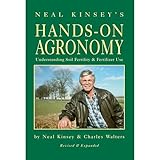Homeschooling Science Curriculum for Elementary & Middle
Below, you will find a variety of homeschooling science curriculum programs that are frequently used by homeschoolers. Each homeschooling science curriculum also has hands-on projects and experiments you can purchase to go along with the learning program/text.
Having the added hands-on learning will provide a good, hands-on experience for your visual or kinesthetic/tactile learner. Added audio-visual CD-roms or DVDs will work well for your auditory learner as well. Use all materials for a well-rounded, multi-sensory homeschooling science curriculum for your child.
Mark Twain Earth & Space Science Interactive Books, Grades 5-8, Geology, Oceanography, Meteorology, and Astronomy Books, 5th Grade Workbooks and Up, Classroom or Homeschool Curriculum
Homeschooling Science Curriculum for Kids
Homeschool Nature Study – Homeschool Nature Study encourages families to enjoy nature in their own backyards through simple activities and nature journals. A global community of families link up with the Outdoor Hour Challenge community in a monthly newsletter and blog carnival.” This award winning blog serves the homeschooling nature study community. (A shout out to Weird Unsocialized Homeschoolers for sharing this homeschooling science curriculum resource – THANK YOU!).
National Geographic’s GeoKids Science – For visual and hands on learners, you can’t go wrong with the National Geographic Science materials via their GeoKids website! Vivid videos, engaging content, and hands-on things for you to try with your child. It’s not in a curriculum type of format, and I wouldn’t classify it as an extensive resource, but what they do have is excellent for exploring science.
Real Science 4 Kids – This is an elementary level, complete homeschooling science curriculum that will give hands-on experience to your children covering Chemistry, Physics, and Biology (through separate books). The experiments are not your ordinary baking soda and vinegar experiments, and parents who use this curriculum love it. You can give your kids a solid scientific foundation before they enter middle or high school by using this curriculum. There are good supporting resources as well. You can buy one subject at a time, or save money and buy a package of all three.
Adaptive Curriculum (AC) for Science and Math – AC provides interactive science and math learning. The modules are all audio-visual in nature. They are narrated with clear visual representations to help students understand the topic. The AC programs are ideal for auditory and/or visual learners. The units have interactive activities to help with learner engagement. The interactive elements will be helpful for students who have a kinesthetic/tactile learning preference, more so than most curricula. However, the activities are primarily of a point-and-click or drag-and-drop nature. The AC programs can be purchased for High School and Middle School math or science subjects. If you’d like to try out there demo, or look at the basis for the product development, you’ll want to visit their main site at http://www.adaptivecurriculum.com/us/ – adaptive homeschooling science curriculum.
Apologia – A well written, narrative homeschooling science curriculum. These books are written in an easy-to-read form that is more like a story than a science book. For reluctant learners Apologia can make science seem less ‘boring’ or dry, particularly if the child is not a science lover. My child is a science lover, and he loves these books. The courses are written by a former university professor, and have experiments which can be performed at home. The curriculum is backed by a question/answer support system. This is the Science curriculum we are currently using and we really like it. Apologia also provides Audio CDs of their textbooks for children with Learning Disabilities. They are a VERY supportive company and I can’t recommend them highly enough!
Duckster’s Science – An online resource site with all kinds of activities and articles (not just for science!).
Hands-On Science: Matter (Hands-on Matter)
24% OffHome Science Tools – Science supplies, articles and experiment ideas! Find homeschooling science curriculum, home science kits, microscopes, and everything else you need to make science exciting. Just about ANYthing you could want, this company has! We love them!
Science articles and Videos – Great content on a variety of science topics. For visual learners, in particular, this video series helps explain modern scientific exploration and concepts. The detailed, step-by-step process of exploration helps make concepts understandable and the colorful videography engages even “reluctant” learners. This series is particularly wonderful for middle to high school aged children. Even at an upper elementary age our children were able to gain a lot of concept knowledge from the NOVA series in particular.
McGraw-Hill Science – This science program used to be provided in conjunction with National Geographic and was an awesome program. We LOVED using the books as our homeschooling science curriculum. They were vibrant, lively, colorful books with images to support almost every concept. The books were terrific for visual learners. Additionally, each unit had cross-curriclular links with additional practice in writing, math, technology, geography, etc. Recently, the books have been updated and changed, and I’ve noticed they’ve lost the National Geographic logo on the cover. I’ve not seen the new books, but if they are modeled after the previous editions, they should be one of the best science programs around. The teacher’s area provides a lot of online helps to support student learning, and these online resources can be of great benefit in home schooling. Books are available for each grade up through sixth grade. Unfortunately, we’ve outgrown these books, or we’d still be using the series!
Science for Kids ~ A lot of materials for K-8 learners.
Homeschool Science Unit Studies Page
Be sure to check out our MAIN Science Page for a list of many additional science topics for kids. Each topic page has links to interactive, audio-visual websites and optional resources to help you with your homeschool science.





